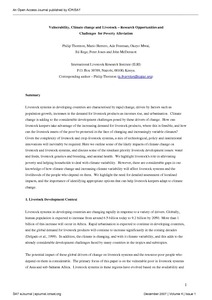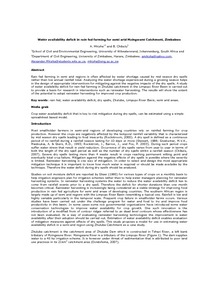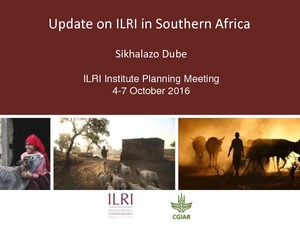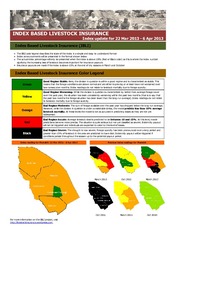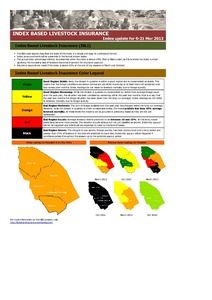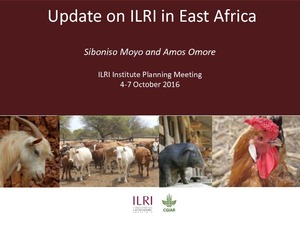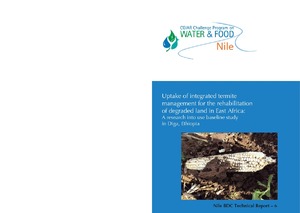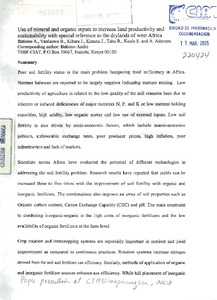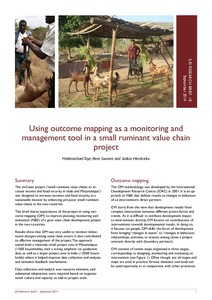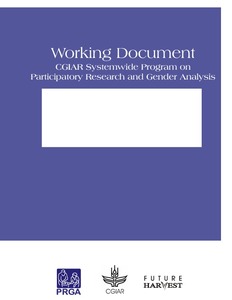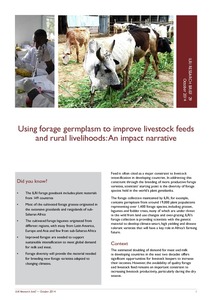Vulnerability, climate change and livestock - opportunities and challenges for the poor
Livestock systems in developing countries are characterised by rapid change, driven by factors such as population growth, increases in the demand for livestock products as incomes rise, and urbanisation. Climate change is adding to the considerable development challenges posed by these drivers of change. How can livestock keepers take advantage of the increasing demand for livestock products, where this is feasible, and how can the livestock assets of the poor be protected in the face of changing and increasingly variable climates?

